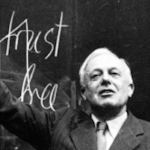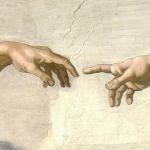Everyone wonders – children, “savages,” men and women at one another. Philosophers wonder too, Rosenzweig says (Understanding the Sick and the Healthy), but they respond to wonder differently from the rest of us.
The rest of us are “adrift on the river Life, borne on, wonderment and all.” We drift and go on living, and “at last, the numbness caused by his wonder passes” (40). The philosopher i.e. one who cannot wait, who is “unwilling to accept the process of life and the passing of the numbness wonder has brought. Such relief comes too slowly. He insists on a solution immediately – at the very instant of his being overcome – and at the very place wonder struck him. He stands quiet, motionless. He separates his experience of wonder from the continuous stream of life, isolating it.” he has to “hook” the problem, to “forcible extract thought’s ‘object’ and ‘subject’ from the flow of life” (40).
He asks “What actually is?” Answers cannot emerge in their time; he doesn’t have the patience for that. Instead, he seeks answers “beneath the surface of the subject – that is, from its sub-stance. The true concern of the philosopher is with the ‘essence,’ the ‘essential’ being of his subjects. He does not have to wait for an answer to his question. Answers wait for him in eager readiness, as independent of time and its processes as is the subject, which also has been detached from the stream of life by means of the artificial fixative: the timeless artificiality of the question ‘what actually is’” (41).
Once the unnatural question is asked, there can be only one answer: What actually is is essence.
Only the philosopher, Rosenzweig says, asks about what is essential: “In life the question is invalid; it is never asked” (42). In daily life, the philosopher himself doesn’t ask the question: “He is scarcely interested in knowing what half a pound of butter costs ‘essentially.’” Outside his philosophising, the philosopher does not court his beloved in proper terms of essence. . . . The terms of life are not ‘essential’ but ‘real’; they concern not ‘essence’ but ‘fact’” (42).
At this point, philosophy takes its leave of common sense: “Common sense puts its faith in the strength of reality. The philosopher, suspicious, retreats from the flow of reality into the protected circle of his wonder. . . . Nothing can disturb him there. He is safe” (42).
A caricature no doubt, but a delicious one, with enough truth to make it stick.











